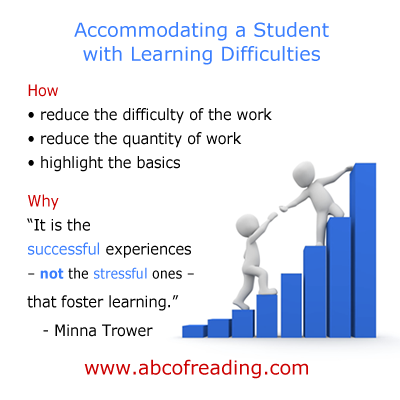When a student experiences persistent difficulties, in addition to tutoring, the need of having his classroom program modified should be discussed with his teacher.

If deemed advisable, the modifications could take the form of a reduction in the level of difficulty and/or quantity of work. For example:
- re spelling: an overly demanding program could become manageable by providing the student with a simplified word list or by requiring him to learn only a few words from the class list;
- re geography, history and science: the most pertinent information in these courses could be highlighted for study;
- re written assignments: not only should the student receive assistance with the outlines but these assignments should also be reduced in length.
Another issue that should be discussed with the teacher is the ranking of the subjects which are difficult for your child. The objective here is to determine which subject should be addressed first during a homework or tutoring session. For instance, if the child is experiencing persistent reading problems, reading should be ranked # 1 as it is the basis of learning.
Despite the somewhat limiting effect of a modification approach, it is recommended because such adjustments can prevent the overwhelming and disheartening effects of persistent failure while still allowing for the acquisition of a reasonable academic basis. In other words, it is the successful experiences – not the stressful ones – that foster learning. It should also be kept in mind that naturally occurring neurological development in conjunction with effective tutoring could with time reduce the need for this form of accommodation.
The next posting will address Promotion.

